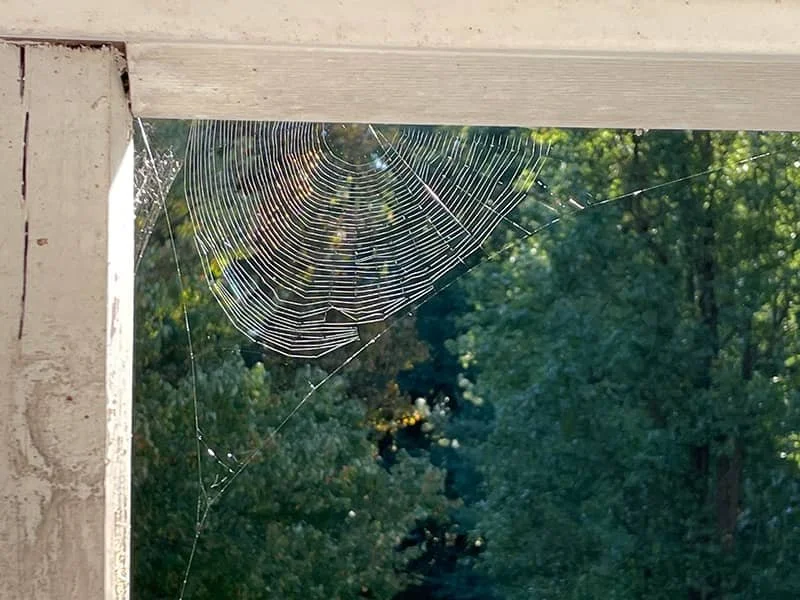Spiders in Maine: Why Fall is Prime Season & How to Keep Them Out
When you think of fall in Maine, you probably picture apple orchards, pumpkin patches, and those bright orange and red leaves. But let’s be real; fall is also prime spider season. As Halloween decorations pop up on porches, you may notice the real eight-legged “decorators” spinning webs around your home. And while most Maine spiders are harmless, that doesn’t mean you want them setting up shop inside your house.
At Advanced Pest Solutions, we get calls every fall from homeowners in Litchfield, Augusta, Boothbay, and Central and Coastal Maine who suddenly feel like they’re sharing their homes with a small army of spiders. Here’s why spider sightings spike this time of year, the types of spiders you’re most likely to encounter in Maine, and how to keep them out of your living space.
Common Spiders in Maine
While Maine isn’t home to the dangerously venomous spiders you hear about in other parts of the country, we have our fair share of arachnids. Here are a few of the most common ones you might spot:
House Spiders
These are the classic web builders in corners, basements, and garages. They’re small, usually brown or gray, and mostly harmless. Their messy webs can make your home look haunted (even when it’s not October).Cellar Spiders (also called Daddy Longlegs)
These skinny-legged spiders love damp basements, crawl spaces, and garages. While their long legs look slightly unsettling, they’re harmless and spend most of their time catching smaller insects.Wolf Spiders
Unlike web-spinning spiders, wolf spiders are hunters. They’re larger, fast-moving, and sometimes wander indoors while chasing prey. Don’t be surprised if you spot one on the basement floor or even in the kitchen during fall.Orb Weavers
These are the master web designers of the spider world. In late summer and fall, you’ll often see their large, circular webs stretched across doorways, gardens, or porches. They’re pretty fascinating to watch, but not fun to walk through first thing in the morning.Jumping Spiders
Small and fuzzy, jumping spiders don’t spin webs to catch prey. Instead, they leap on their food. While harmless, their quick movements can be startling indoors.
Why Fall is Prime Spider Season
Ever wonder why you notice more spiders in September and October? They’ve been around all along, but fall is when their behavior makes them harder to miss. Here’s why:
Mating Season
Fall is spider dating season. Mature spiders begin searching for mates, which means you’re more likely to see them moving around instead of quietly hiding in corners.
Cooler Weather
Just like mice and other pests, spiders start sneaking indoors when the nights turn chilly. Your warm basement, attic, or living room is much more appealing than the frosty outdoors.
Plenty of Prey
Spiders follow their food sources. Since insects like flies, moths, and ants are still active in early fall, spiders stick close to the action. That often means hanging out around your home’s lights, windows, or entryways.
Spider Prevention Tips for Maine Homes
The good news? You don’t have to let your home become a haunted house of spiders this fall. A few simple steps can make a big difference:
Seal Entry Points
Check around doors, windows, siding, and your home’s foundation for gaps or cracks. Spiders (and the bugs they eat) can squeeze through surprisingly small spaces.Keep Things Clean
Regular vacuuming, especially in corners, under furniture, and in the basement, helps remove bpiders and the insects they feed on.Limit Outdoor Lighting
Lights attract moths, flies, and other insects. And guess who follows the bugs? Yep, spiders. Switch to yellow “bug lights” or use motion sensor lighting to reduce nighttime bug activity around your home.Reduce Clutter
Stacks of firewood, piles of leaves, or boxes in the garage all make great hiding spots. Store firewood away from your home’s foundation and keep things tidy indoors and out.Use Screens
Make sure window and door screens are intact. Even a tiny tear can be an invitation for spiders and their prey.Cut Back Vegetation
Trim shrubs and branches that touch your home. Spiders often use these as bridges to crawl inside.
Sign Up for Home Pest Control and Let Our Team Take Care of the Spiders!
While DIY prevention goes a long way, sometimes spider problems stick around no matter how hard you work at sealing off every potential entry point. That’s where Advanced Pest Solutions comes in.
Our team doesn’t just treat the spiders you see; we also target the insects they feed on, breaking the cycle that keeps them returning. With year-round treatments tailored to Maine homes, we help keep your living spaces spider-free, no matter the season.
Here’s how we can help:
Thorough Inspections
We identify where spiders and their prey are getting in and what’s attracting them.Targeted Treatments
Effective applications to reduce spider populations inside and around your home.Ongoing Protection
Seasonal services that keep spiders (and the bugs they love to eat) under control through every season.
So, whether you’re tired of cobwebs in every corner or want peace of mind knowing spiders won’t make themselves at home, Advanced Pest Solutions has you covered. Check out our home pest control plans or give us a shout!
Don’t Let Spiders Crash Your Fall
Spiders are a part of life in Maine, but that doesn’t mean you have to share your home with them. As fall sets in and spider season peaks, some prevention and professional assistance can keep your home comfortable and web-free.
This fall, enjoy the pumpkins, the foliage, and the cozy nights by the fire. Leave the creepy crawly part of the season to Halloween decorations, not to real spiders inside your house.
Contact Advanced Pest Solutions today and let us help you take back your home this fall.

